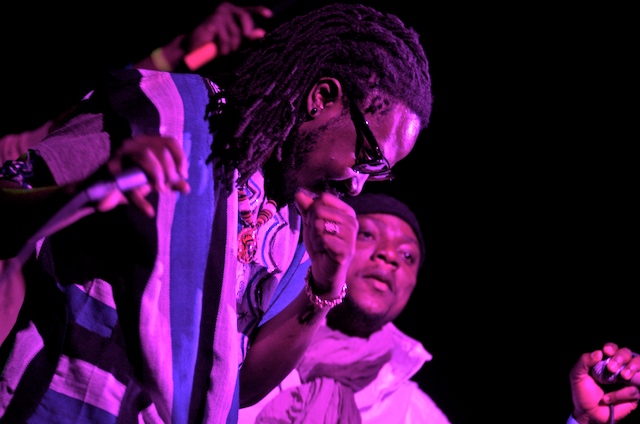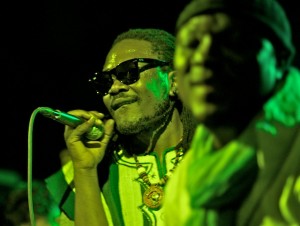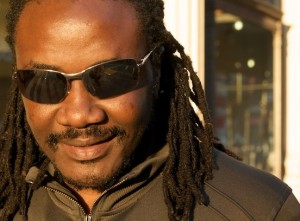Bajah + the Dry Eye Crew started as MCs and singers in Freetown, Sierra Leone, and became superstars in the aftermath of civil war. They came to New York to record, and though their self-titled album has been finished for months, there’s still no official release date... Meanwhile, there are always gigs, like opening for Ziggy Marley at Irving Plaza on June 17. That’s when I caught Bajah, shortly before the Dry Eye Crew went on. We chatted in my car parked near the club, briefly, but with feeling. Here’s our conversation and shots from the band’s excellent, psychedelically lit set that night. Bajah and A-Klass rap and sing in front with terrific moves and energy. The band is small and efficient moving through African, dancehall and hip hop grooves. Great band. Great show!
 B.E.: You're the lead singer for Bajah + the Dry Eye Crew. How did you guys start?
B.E.: You're the lead singer for Bajah + the Dry Eye Crew. How did you guys start?
Bajah: Well, we started in Sierra Leone, especially with the MCs. We did a lot of records out there, talking about the daily activities, you know, what's happening in the daily lives of people. So we've been playing that kind of positive music to liberate the people a little bit. And we finally got a deal to come over here and do another album.
B.E.: What year did Dry Eye Crew start?
Bajah: Well, Dry Eye Crew started in about 2000, up to 2002.
B.E.: The war in Sierra Leone was just ending then.
Bajah: Yeah, it was just ending. So that's why we hooked in together, to reinforce the peace toward the end of the thing, so everybody can just make this peace consistent, not on and off, like it's happened in other places.










